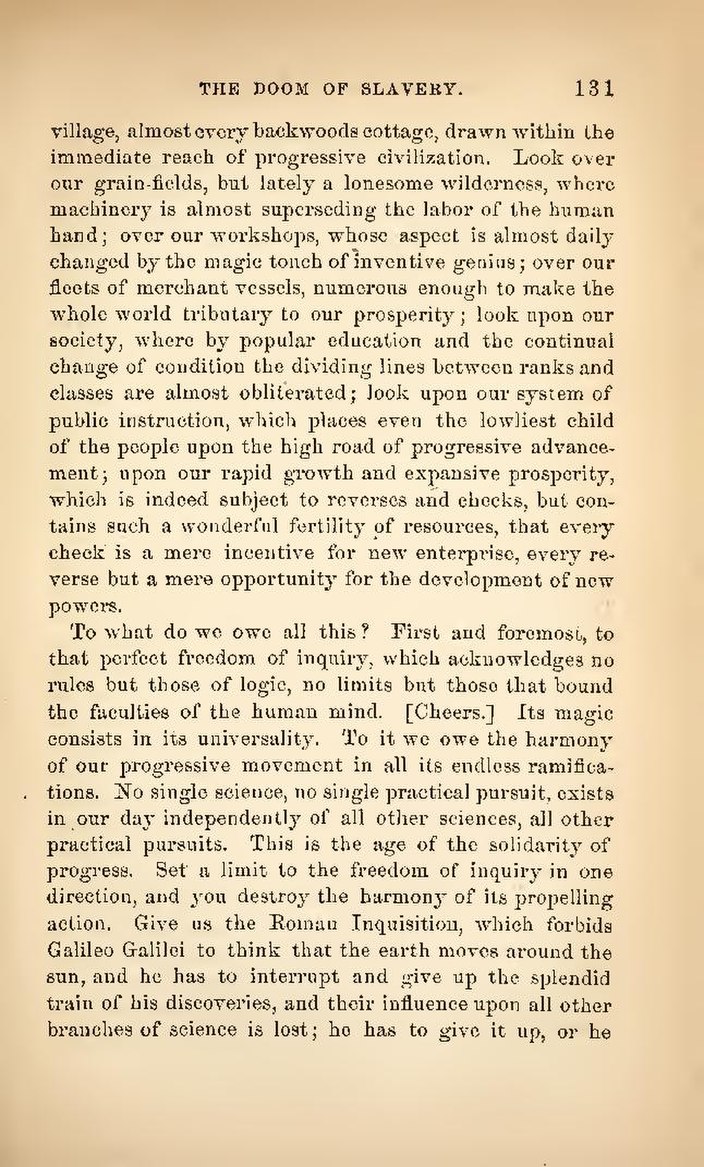village, almost every backwoods cottage, drawn within the immediate reach of progressive civilization. Look over our grain fields, but lately a lonesome wilderness, where machinery is almost superseding the labor of the human hand; over our workshops, whose aspect is almost daily changed by the magic touch of inventive genius; over our fleets of merchant vessels, numerous enough to make the whole world tributary to our prosperity; look upon our society, where by popular education and the continual change of condition the dividing lines between ranks and classes are almost obliterated; look upon our system of public instruction, which places even the lowliest child of the people upon the high road of progressive advancement; upon our rapid growth and expansive prosperity, which is indeed subject to reverses and checks, but contains such a wonderful fertility of resources, that every check is a mere incentive to new enterprise, every reverse but a mere opportunity for the development of new powers.
To what do we owe all this? First and foremost, to that perfect freedom of inquiry, which acknowledges no rules but those of logic, no limits but those that bound the faculties of the human mind. [Cheers.] Its magic consists in its universality. To it we owe the harmony of our progressive movement in all its endless ramifications. No single science, no single practical pursuit, exists in our day independently of all other sciences, all other practical pursuits. This is the age of the solidarity of progress. Set a limit to the freedom of inquiry in one direction and you destroy the harmony of its propelling action. Give us the Roman inquisition, which forbids Galileo Galilei to think that the earth moves around the sun, and he has to interrupt and give up the splendid train of his discoveries and their influence upon all other branches of science is lost; he has to give it up, or he
